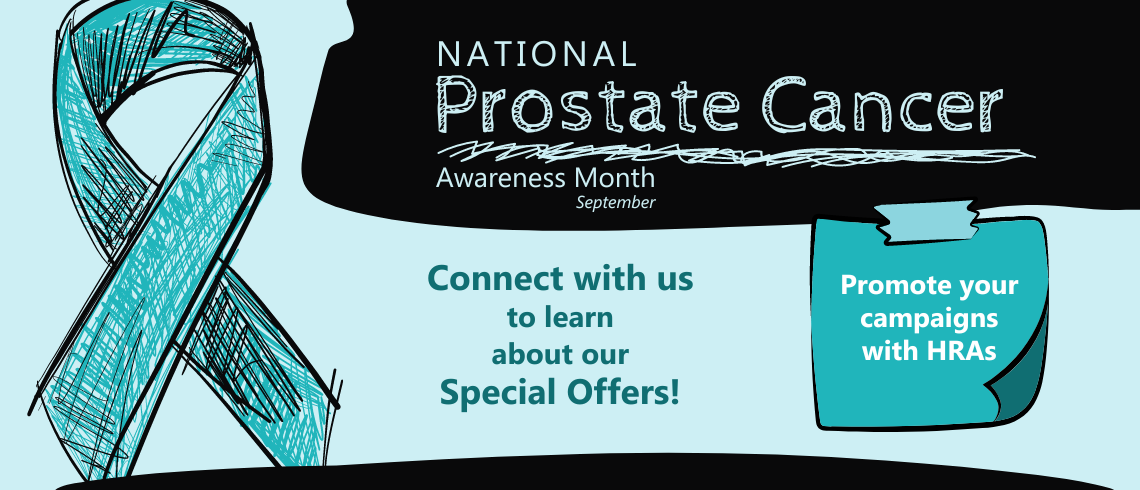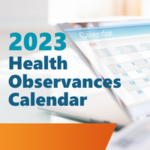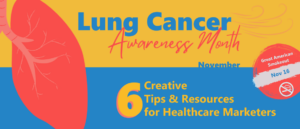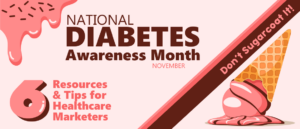
Unmasking the Silent Threat
Prostate cancer is a significant health concern across the world, particularly among men. The National Cancer Institute says it is one of the most commonly diagnosed cancers and the top cause of cancer deaths in males.
By promoting prostate cancer awareness, all hospitals can help people understand the risk factors, symptoms, and importance of early detection. This knowledge helps patients take actions such as adopting a healthy lifestyle, undergoing regular screenings, and seeking medical advice for any concerning symptoms.
Hospitals can also help reduce the stigma associated with prostate cancer. By actively promoting prostate cancer awareness, you can create a support system and an environment that encourages men to seek medical help without embarrassment. The result: Earlier diagnosis, more effective treatment, and improved overall outcomes.
What We Offer for Prostate Cancer Awareness Month
Talking about prostate cancer can be difficult. Health risk assessments (HRAs) are a great way to start that conversation.
HRAs enable users to conveniently seek treatment at the right point of care for their situation AND your facilities’ resources. Our risk assessments promote prostate cancer awareness by identifying individuals who may be at higher risk due to factors such as age, family history, or lifestyle choices. Based on the assessment results, hospitals can provide targeted educational materials, counseling, and screening recommendations to raise awareness and encourage appropriate preventive actions.
Our Prostate Cancer Risk Assessment is Always a Top Performer
With over 52% completion rates and 56% of users clicking on a follow-up call-to-action, the ROI is easy to see.
Other statistics:
- 71% are 45-54 years old
- 9% are 55-64 years old, and
- 23% of users reported having a screening plan
- 41% have discussed a screening by age 50
What Healthcare Marketers Can Do
Our evidence-based Prostate Cancer risk assessment estimates users’ current risks and high-grade risks of prostate cancer. The calculations consider lifestyle, genetics and personal health histories. We update it regularly.
Want to know the type of people you should be focusing on? Curious as to what to say to users post-completion? We can help. One of the great features of our HRAs are the Follow Up Strategy Guides. Take a look at our Prostate Cancer Follow Up Strategy Guide for 6 different personas with relevant calls-to-action.

Take advantage of our special pricing on HRAs that align
with upcoming Health Awareness Months.
Click Here to Learn More 
What else is happening in September?
Prostate Cancer Awareness Month isn't the only thing happening in September. Check out our calendar to find out what other opportunities you can promote in September and year round.




